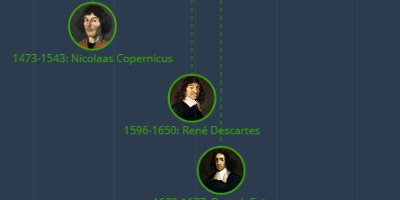Info Michel Foucault (1 янв 1926 г. – 1 янв 1926 г.)
Описание:
Michel Foucault was a French philosopher and historian. Among other things, he researched the history and development of thinking.Epistemology:
''man has a variety of the way he talks about things and organises them (discourses, =spoken or written communication) in the course of history '' Different era's have different Épistème's.
This is explained in his book 'The order of things':
Exploring how man came to be an object of knowledge, it argued that all periods of history have possessed certain underlying conditions of truth that established what was acceptable as scientific discourse. Foucault argues that these conditions of discourse have changed over time, from one period's episteme to another.
Épistème= (in Dutch) een manier (besef) van ‘kennen’ in een bepaald tijdperk. (een besef van waarheid in een bepaalde periode).
He divides 3 periods:
1. Untill 1650 (Renaissance): kennis op basis van gelijkenis.
-De mens, de hele natuur en kosmos is (even-)beeld van het goddelijke.
-God als garantie van waarheid.
-Alles heeft één diepere kern.
2. 1600 - 1800 (Moderne Tijd): kennis op basis van representatie
-geen kennis via gelijkenissen maar via vergelijkingen
-empirie (ervaring) is belangrijk, 'eerst zien dan geloven'.
3. 1800 - ±1950 (Laat-moderne Tijd): kennis op basis van eindigheid.
vb. Hegel: einde kunst
Vb. Nietzsche: god is dood
-De grond v/d wereld kan alleen nog in de gedachten v/d mens gevonden worden.
-Kennis is een momentopname en een resultaat van dieper liggende processen -> Ontstaan kunstgeschiedenis Hegel, Evolutietheorie van Darwin, Ontstaan van de mens (Kant), Jezelf buiten je ‘context’, je tijd, je situatie denken (Freud).
Focault: ±1750/1800, Enlightenment: human kind 'invented', science started. From this time on, people started to think about themselves, who they are as a human, that they are a individual even. (De mens gaat buiten zichzelf staan) This couldn't have happened without Kant, he 'invented human beings', the way we think about them/ourselves. Freud, inventions and (scientific revolutions) etc. etc. can be seen as a result of this.
-> Focault stelt: Epistème behorend bij de moderne tijd:
''Het moderne uitgangspunt van de eenheid tussen woorden en dingen is direct verbonden met de aanname dat de mens als subject, zichzelf als object (dus als ding, als onderwerp, als waarheid) kan kennen. '' Dit is dus in aansluiting met de theorie van Kant.
Добавлено на ленту времени:
Дата:
1 янв 1926 г.
1 янв 1926 г.
~ 0 min
